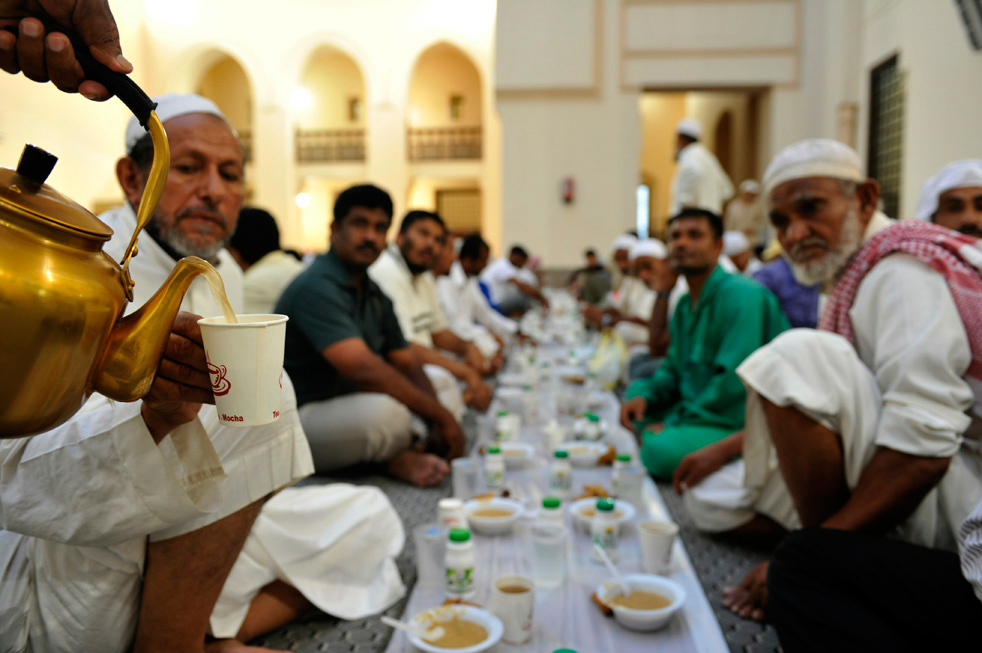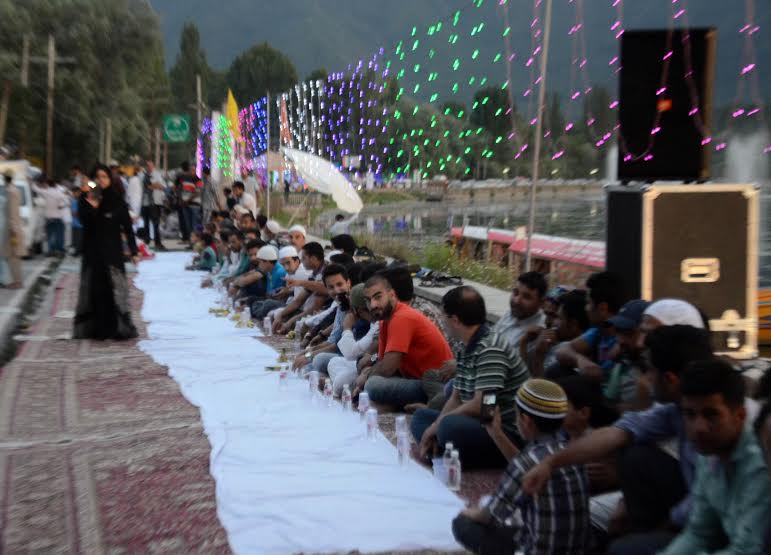by Aadil Hussain
Fasting helps in the consumption of the extra glucose, which otherwise results in augmentation of blood sugar level. Hence a normal level of blood sugar is retained. Cardiovascular health also benefits from fasting. Cholesterol, like the extra blood sugar, experiences a reduction, thereby lowering the risk of heart diseases.

Ramadan, the month of fasting, is superior to all other months because of the innumerable blessings it approaches with. The month not only stimulates every individual to observe uniform and timely worship but also hosts the moments in which the Holy Quran was revealed. Besides having the Night of Qadr, Makkah was conquered and the Battle of Badr won only this month. Described as “a limited number of days” (Ayyaamam Maudodaat) for fasting, Allah says in Quran about Ramadan, “But to fast is best for you, if you only knew” (2:184).
There can be no denial of the fact that Allah has created life in order to test the man, whether the man holds firmly on to the straight path or he indulges in forbidden pleasures. On the battlefield of life, the twin forces of Shaytan and Nafs continually try to derail him. Initially, the job of the derailment is for Shaytan alone but with time Shaytan secures the support of Nafs while corrupting it, for “when the [Allah’s] servant commits a sin, a black mark appears upon his heart. If he abandons the sin, seeks forgiveness, and repents, then his heart will be polished. If he returns to the sin, the blackness will be increased until it overcomes his heart” (Sunan al-Tirmidhi). Set free under the environment of evil and virtue, in presence of the dual-force, the man is sure to go astray time and again, save the one Allah saves. Therefore, Allah calls continually to mankind not to despair but return to His Merciful court so that it is forgiven and rescued.

There are several junctures for a man to seek forgiveness from Allah, where it will not be denied to him. One such means is the mouth of Ramadhan. On an occasion, narrated by Abu Huraira (ra), while ascending the pulpit, Prophet (saw) said the word Ameen three times; when enquired about it, he (saw) answered, “Verily, Gabriel came to me and he said: Whoever reaches the month of Ramadan and he is not forgiven, then he will enter Hellfire and Allah will cast him far away, so say Ameen. I said Ameen” (Sahih Ibn Hibban). Who can deny the acceptance of this dua, when it is answered by the one for whom the world has been created? Also since Prophet (saw) would often weep for the forgiveness of his Ummah, he (saw) would not have said Ameen, had it been difficult for people to attain it in this month. The simple fast in the month of Ramadan “with sincere faith and hoping for a reward from Allah” avails to a man an opportunity of being forgiven from all his previous sins, the reward being forgiveness per se.
Since for the elderly, the sick i.e., those who are physically or mentally incapable of fasting, pregnant women, breastfeeding mothers and travellers fasting is not mandatory, does it mean they remain devoid of this gift of Mercy? No, for the month has other blessings in it, the night of Qadr. Narrated by Abu Huraira (ra), Prophet (saw) said, “Whosoever established Salat (prayer) on the night of Qadr with sincere faith and hoping for a reward from Allah, then all his previous sins will be forgiven” (Bukhari). It does not stop here. Those incapable of observing fast can have the same reward as a fasting person if they help him in breaking the fast at the time of Iftaar, while nothing will be reduced from the reward of the fasting person.
In the month of Ramadan, a man’s fight against the dual force of Shaytan and Nafs is made easy and victorious. With the onset of this month “the devils are chained”, therefore a man has to fight the single derailing force of Nafs, rather the Nafs has to be purified from the corruption by fasting and establishing prayers, apart from seeking forgiveness. While describing the status of a person observing fast, the prophet (saw) said, “By Him in Whose Hands my soul is, the smell coming out from the mouth of a person observing Saum (fast) is better with Allah than the smell of musk. (Allah says about the fasting person), ‘He has left his food, drink and sexual desires for My sake. The Saum (fast) is for Me. So I will reward (the fasting person) for it and the reward of good deeds is multiplied by ten times'” (Bukhari). The entire world prays for a fasting person, from the bed he sleeps on to the water he uses for the ablution (wudu). There is a gate in Paradise called Ar-Raiyan through which the people who observe fast will enter it and after their entry the gate will be closed, allowing nobody else through. Another way round “Whoever fasts a day in the way of Allah, Allah will move his face away from the Hellfire by a distance of seventy years” (Bukhari).
Lessons being many, one of the greatest realizations inculcated by the month of Ramadan is empathy, rather than the feeling of sympathy towards the hungry. One is naturally coerced to imagine the condition of the poor, who encounter consequent days of famine when it comes to food. Having this cognisance once is then taught to share whatever one has with the needy, for the reward in helping people to have iftaar is same as that of the fasting person. Therefore, Ramadan guides one naturally to the path of philanthropy. The month establishes equality, physically as well as psychologically. People discern that they are the creation of the same God, having the same needs, same orders and the same rewards from Him, hence they are equal.

When it comes to health, the subsequent fasts have myriad securities. Fasting helps in the consumption of the extra glucose, which otherwise results in augmentation of blood sugar level. Hence a normal level of blood sugar is retained. Cardiovascular health also benefits from fasting. Cholesterol, like the extra blood sugar, experiences a reduction, thereby lowering the risk of heart diseases. Benefits like the removal of harmful toxins from the body, increment in the efficiency of metabolism and decrement in leaping cases of obesity prevail during the course of fasting. Recent studies reveal that fasting helps in curtailment of stress, and sometimes depression, therefore the consideration of good mental health here will not be out of place.
(Author is a student of BA (Hons) English at the IUST, Awantipore. The opinions expressed in this article are those of the author’s and do not purport to reflect the opinions or views of Kashmir Life.)















